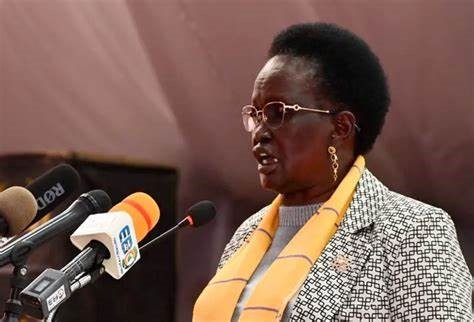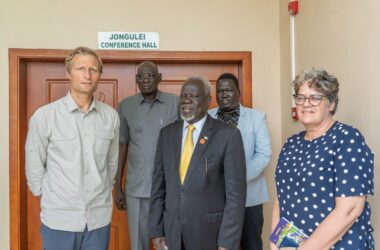By Yiep Joseph
Vice President for Gender and Youth Cluster, Rebecca Nyandeng de Mabior has reflected that late Dr. John Garang was not a tribalist, unlike many contemporary leaders.
Addressing participants during a campaign to end child hunger and malnutrition in South Sudan, VP. Nyandeng highlighted Dr. Garang’s commitment to providing educational opportunities for all South Sudanese, regardless of their tribal affiliation.
“Dr. John Garang struggled and found his way to America when he was studying as a student; he has taken some of the students from here to America, and in those days, going to America was not easy,” Nyandeng said.
“He was not tribalist like us today; he has taken some students from Equatoria, from Bhar el Ghazal and from Upper Nile,” she added.
Her remarks come at a time when citizens increasingly blame leaders for prioritizing tribal interests over the welfare of the nation.
- Nyandeng described late Dr. John Garang not only as a soldier and a leader but also as a farmer who firmly believed in the transformative power of education.
At the same event, Aya Benjamin Warille, the National Minister of Gender, Child, and Social Welfare, urged parents to invest in their children’s education as a means of fostering positive change.
Nyandeng’s candid critique of tribalism adds to a growing list of leaders advocating against the divisive issue.
Last year, Sarah Cleto, the governor of Western Bahr al Ghazal, called for an end to tribalism, emphasizing its detrimental impact on national unity and development during Independence Day celebrations in Wau.
“I urge my fellow citizens of Western Bahr al Ghazal: tribalism is a root cause of our crisis; let us put an end to it,” she stated.
A study released in 2011 by the U.S.-based National Democratic Institute (NDI) revealed that South Sudanese viewed insecurity, corruption, underdevelopment, and tribalism as the greatest threats to the country’s future.
Conducted through focus group discussions across all ten states, the study highlighted the urgent need for unity.
In 2023, leaders, including VP Nyandeng, called on South Sudanese to reject tribalism and embrace peace and stability for the betterment of the nation.
South Sudan has 64 tribes, with the largest being the Dinka, constituting about 35% of the population. The second largest is the Nuer tribe.



